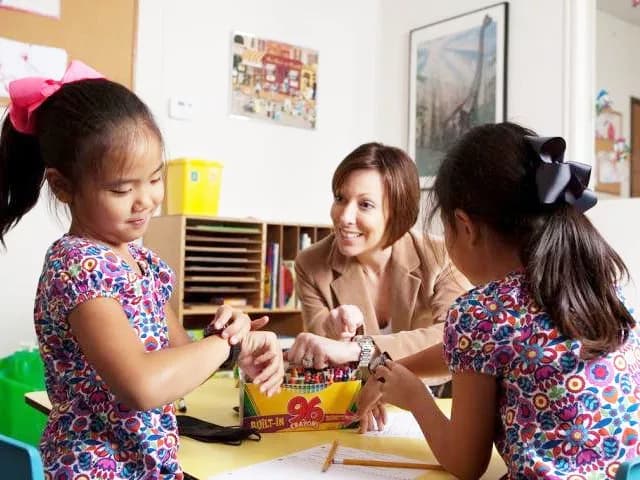
Lack Of Sleep Increases A Child's Risk For Emotional Disorders Later
When asked how lack of sleep affects emotions, common responses are usually grumpy, foggy and short-tempered. While many jokes are made about how sleep deprivation turns the nicest of people into a Jekyll and Hyde, not getting enough shut-eye can lead to far more serious consequences than irritability, difficulty concentrating and impatience.
Candice Alfano, a clinical psychologist and associate psychology professor at the University of Houston, says children who experience inadequate or disrupted sleep are more likely to develop depression and anxiety disorders later in life. Funded by a grant from the NIH's National Institute of Mental Health (NIMH), the study seeks to determine the precise ways inadequate sleep in childhood produces elevated risk for emotional disorders in later years.
"In particular, we are interested in understanding how children appraise, express, regulate and later recall emotional experiences, both when sleep is adequate and when it is inadequate," said Alfano, who is the principal investigator of the study and director of the Sleep and Anxiety Center of Houston (SACH). "We focus on childhood, because similar to problems with anxiety and depression, sleep habits and patterns develop early in life and can be enduring."
Alfano and co-investigator Cara Palmer, who is a postdoctoral fellow at SACH, are identifying distinct emotional processes that, when disrupted by poor sleep, make children vulnerable to developing anxiety and depression. To pinpoint these cognitive, behavioral and physiological patterns of emotional risk, they are temporarily restricting sleep in 50 pre-adolescent children between the ages of 7 to 11.
Their findings reveal that inadequate sleep impacts children's emotional health not only by creating more negative emotions, but also by altering positive emotional experiences. For example, after just two nights of poor sleep, children derive less pleasure from positive things, are less reactive to them and less likely to recall details about these positive experiences later. When their normal nightly sleep habits are adequate in duration, however, they're finding these emotional effects are less apparent.
"Healthy sleep is critical for children's psychological well-being," Alfano said. "Continually experiencing inadequate sleep can eventually lead to depression, anxiety and other types of emotional problems. Parents, therefore, need to think about sleep as an essential component of overall health in the same way they do nutrition, dental hygiene and physical activity. If your child has problems waking up in the morning or is sleepy during the day, then their nighttime sleep is probably inadequate. This can result for several reasons, such as a bedtime that is too late, non-restful sleep during the night or an inconsistent sleep schedule."
Alfano says studying the link between sleep disruption and maladaptive emotional processing in childhood is essential, because that's when sleep and emotion regulatory systems are developing. The increased need for sleep and greater brain plasticity during childhood suggests this to be a critical window of opportunity for early intervention. The combined societal costs of anxiety and depressive disorders are estimated to be more than $120 billion annually, underscoring the need for early identification of risk factors and effective intervention methods.
A recent article appearing in the journal Sleep Medicine Reviews authored by Palmer and Alfano reviewed the scientific literature on sleep and emotion regulation, partly to inform the methods of their NIH study. Their article provides evidence that without adequate sleep, people are less likely to seek out positive or rewarding experiences if they require effort, such as social or leisure activities. Over time, they say, these behavioral changes can elevate risk for depression and an overall poorer quality of life.
"There are multiple emotional processes that seem to be disrupted by poor sleep," Alfano said. "For example, our ability to self-monitor, pick up on others' nonverbal cues and accurately identify others' emotions diminishes when sleep is inadequate. Combine this with less impulse control, a hallmark feature of the teenage years, and sleep deprivation can create a 'perfect storm' for experiencing negative emotions and consequences."
The above post is reprinted from materials provided by University of Houston. The original item was written by Lisa Merkl. Note: Content may be edited for style and length.
Disclaimer: DoveMed is not responsible for the adapted accuracy of news releases posted to DoveMed by contributing universities and institutions.
Primary Resource:
Palmer, C. A., & Alfano, C. A. (2016). Sleep and emotion regulation: An organizing, integrative review. Sleep medicine reviews.
Related Articles
Test Your Knowledge
Asked by users
Related Centers
Related Specialties
Related Physicians
Related Procedures
Related Resources
Join DoveHubs
and connect with fellow professionals

0 Comments
Please log in to post a comment.